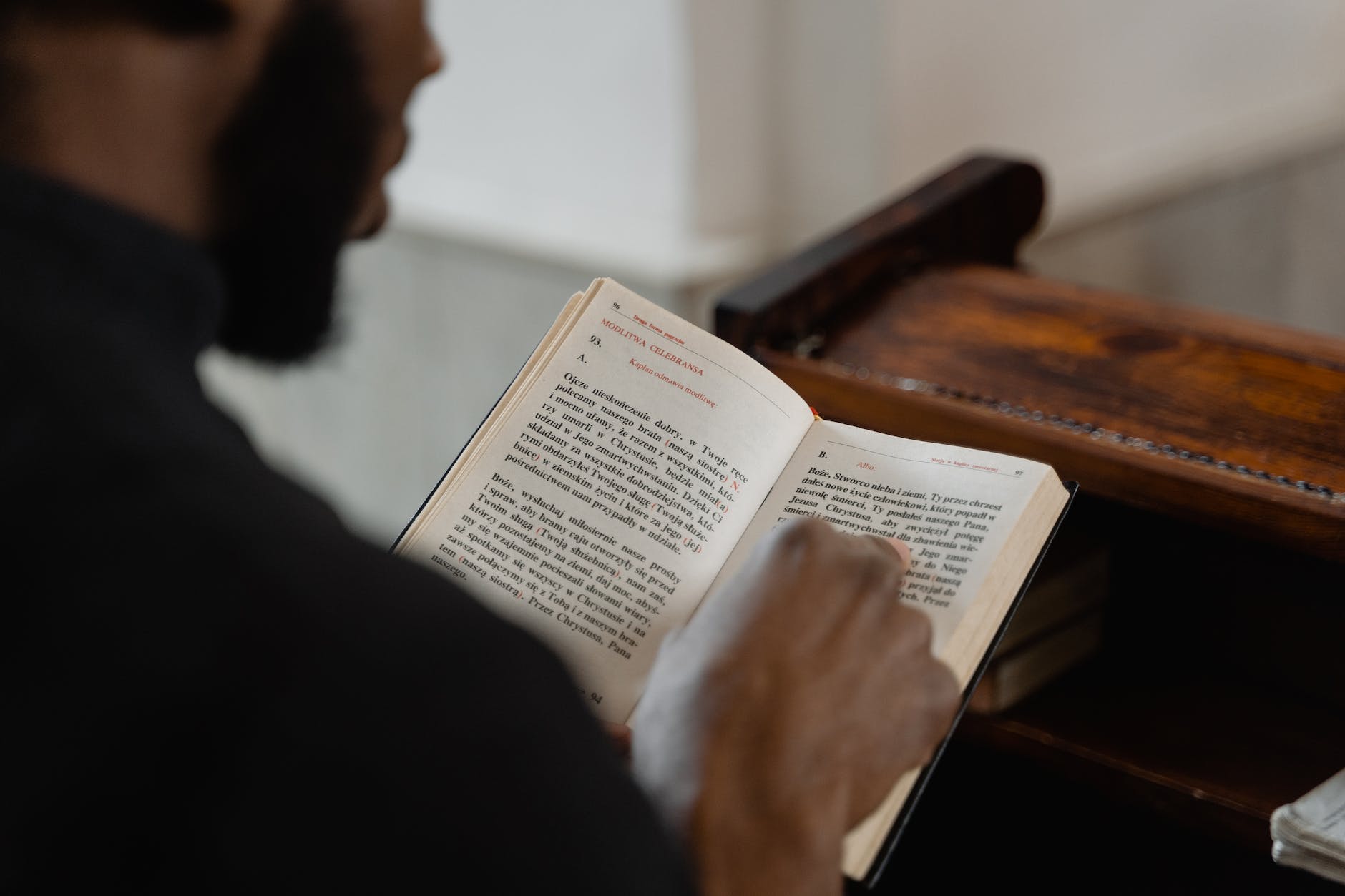Faith-Empowered Bible Verses That Can Help Support Recovery and Life Transformation
Step Three of the Twelve Steps – James 4:7 – I Know God Can, So I’ll Humbly Let Him.
Step 3: Made a decision to turn our will and our lives over to the care of God as we understood Him.
7 Submit therefore to God. But resist the devil, and he will flee from you.
Step Three is about submitting to God to let him help you how He wants to. The goal is to remove the key obstacle that is in the way: “PRIDE!” Humble submission is vital to the power needed for the recovery journey.
Someone can rarely be in a severe level of addiction to something, give in to God, and just by miracle power never crave the addiction again. This does happen, but most of us are left disappointed if this was our expectation or if someone gave us this expectation.
The reality is found in this passage from James. Submitting to God is the start of the process, but James shows here that there is more. There is a process of action that follows the submission.
In terms of the Twelve Steps, working up to the submission is contained in the first three steps, yet there are still nine more. A common misconception about this process is that each activity outlined in recovery or even in the Bible is a magic task or set of functions you can do to make God do what we want him to do.
The tasks we do in recovery and even in a general faith walk are not incantations we read out of some old book that compels the ruler and creator of the universe to bend to our will. The faith-focused activities in the Bible and recovery are to remove obstacles that keep us apart from God’s power.
Submitting to God gives you access to a power you didn’t have before.
Submitting to God gives you access to a power you didn’t have before. The power to “resist’ evil. That is not to say that any of us may not have had some power to resist some evils, some or even most of the time. The problem is that there are times, if you are seeking recovery, it would seem, at very crucial times, that your resistance fails miserably. The gift is the ability to resist, but the gift has to be used.
What good is the gift of being able to resist if you don’t ever resist anything? Many other things are limiting your connection to God; we will look to the rest of the Bible and the rest of your recovery to clarify at different points on your journey. This part of your recovery journey is focused on access to the power to start to resist the devil. You are using that power to remove the obstacles you have erected between yourself and God. A key example from the last four steps goes back to our previous discussions of James 4:6 (which is the verse before this one).

James 4:6 – Don’t Work to Have God Opposed to You, Especially When You Need Recovery!
6 But He gives a greater grace. Therefore it says, “God is opposed to the proud, but gives grace to the humble.”
To keep the conversation in the realm of the first three steps, submitting to God is a massive act of humility in God’s direction. What if a person is steeped in pride and, because of that pride, will not submit to turn their will or their life over to God?
This passage responds to that question with strong language. It does not say that pride will send a person to eternal fire or eliminate the possibility of salvation. That’s often where the conversation of this passage gets lost in the quicksand of theological debate. The problem is that this passage says nothing that is usually involved in those debates. What it does state clearly is that your efforts here in life, when tainted by pride, are by default at odds with God.
The way I imagine this is in human terms. It is as if anything you do, even if it is a good thing, when it has pride as a motive, smells horrible to God. I know I am assigning human traits to God, but it is an image that allows me to picture the concept. No Matter what I do, if it has pride as the reason at its source, it is repulsive to God, and He will resist my efforts to keep them from contaminating everything.
No matter how you prefer to visualize or understand the concept, that; “resisting the proud,” if I am limited by pride, is an obstacle between what I am trying to accomplish and it flowing along with God’s empowerment and blessing.
Pride is a critical obstacle in all of our relationships with God.
Pride is a critical obstacle in all of our relationships with God. These things that God has told us to avoid are the absolute killers of the recovery process. I want my recovery journey to be with Godly wind in my sails instead of dragging a forbidden anchor holding back the entire process.
Not making the changes or adjustments the Bible outlines is a significant way to put yourself in a position where you work against God. Playing tug-o-war with the most powerful being in the universe is not the most advisable way to work recovery.

Proverbs 3:5-6 – Trust the LORD and Not Just Whatever You Are Used To
5 Trust in the Lord with all your heart, And do not lean on your own understanding. 6 In all your ways acknowledge Him, And He will make your paths straight.
Here are a few more instructions to help us remove obstacles that put us in a wrestling match with God. The last few steps are focused on the first part. Trusting in God, but with all of your heart.
Added to that is the idea that however you understand the world and spirituality, trust in God’s direction more than the comfort of staying the same. This is a tall order and another struggle of pride. As we have stated in previous articles, God resists the proud. An open heart and mind for what God is directing you to do or change is the key to him guiding your path to recovery.
Proudly not listening to the guidance of God takes that “make your paths straight’ part out of the equation, and your recovery journey is effectively reduced to an exercise in playing tug-o-war with God. What would you expect when God tells you the best way is to do such and such, and you say, no, thank you, I’d rather trust my way? That’s a wrong choice, even if you take away the apparent fact that trusting our own way is, in most cases, how we all got here in the first place.
The passage then says that in everything we do, we should acknowledge Him. I have a quick saying that I use: “Any time you are not walking with God, you are walking without God.” I can feel the theological debate of omnipresence, what that means, and the details of the words I used building across the planet, but my point was the concept. Anytime we find ourselves doing things without some engagement or connection with God, we are, at least from our perspective, just doing something utterly exclusive of our faith.
“Any time you are not walking with God, you are walking without God.”
I am not suggesting that suddenly tomorrow, a person hearing anything like this for the first time is going to be thinking about God at all times in all things nonstop. The truth is that this grows along our journey, but the ideal we are all striving for is a life where we are connected to God in mind, body, and spirit at all times, no matter what we are doing. This has to be something we are striving for and building for our entire recovery journey and faith journey.
If we can work hard to do these directions from above, as shown, we will find the path to recovery a bit less complicated. Growing these ideas into a lifestyle has many challenges and obstacles, but the struggle for these life changes will have you working from a position of rowing in the same direction as God.

Romans 12:1 – Giving in to God Fully is Spiritual Worship
1Therefore , I urge you, brothers and sisters, by the mercies of God, to present your bodies as a living and holy sacrifice, acceptable to God, which is your [b]spiritual service of worship.
This extends what we discussed previously, but the language goes further.
I looked up the word “sacrifice” in the Merriam-Webster dictionary, and I found:
- :an act of offering to a deity something precious especially:
- the killing of a victim on an altar: something offered in sacrifice:
- destruction or surrender of something for the sake of something else
Offering something to a deity, “something precious,” is a prominent part of the definition. That is the humility we have been discussing. The idea is that there are levels to what one gives. I tend to say: “If it is not hard to give, it is a gift, but if it is precious, valuable, hard to give, it is a sacrifice.”
There is a passage in Mark 12:41-44 where Jesus goes and sits to watch people giving offerings, and many very affluent people gave large amounts. Then there was one widow who only gave a couple of coins. Jesus calls his disciples together and tells them that she actually gave more because she gave an abundance of her poverty, and everyone else gave a small portion of their wealth.
One preacher I heard said it like this: “It’s not how much you give… It’s how much you have left!” that may not be a universal rule, but it is a very memorable way to process the idea of a sacrifice compared to just a gift. Both are offerings, but both are not sacrifices.
The next part of the definition is the “killing of a victim” on an altar. The passage strangely calls for us to be “living” sacrifices. Somehow, alluding to this definition but also excludes the dying part. The implication is the complete destruction of who you are to become who you can be.
Recovery is going to be constructed on the idea of change. Whatever you have been doing needs to be fixed, so you will have to do something different. The more a person struggles to hold on to the old ways of being, the less that person can expect to embrace the new ways of being. We either embrace the old or the new, but any attempt at both usually ends with the old.
Whatever you have been doing keeps ending badly, so you will have to do something different!
The “living sacrifice” is a total release of everything—a lot to ask of any of us. No matter how much it is to ask, it is not suddenly an option because we do not like it. It simply is what it is. The old you will have to die to become the new and improved you!
That leads to the last part of the definition that I included: “destruction or surrender of something for the sake of something else.” The thing that is destroyed and surrendered as an offering is everything that is the old you.

Psalm 37:5 – Trust God Enough to Commit, and He will Guide You Through Recovery
5Commit your way to the Lord, Trust also in Him, and He will do it.
This passage speaks of committing and trusting in God. The concept of “commitment” for some of us is challenging. In some cases, this unconsciously translates from “commit” to “kind of try to follow the way of the Lord when it seems easy to do.”
Step Three, turning your life and your will over to God, is not just the idea of loosely agreeing to the concept of God as existing. The wording suggests the same level of commitment as the passages we have been studying. Complete surrender of all of your being. Completely letting go of the old you will allow you to embrace the new you that is developing.
Completely letting go of the old you will allow you to embrace the new you that is developing.
Trusting enough to let go is the main obstacle He has been waiting for you to remove. It takes tremendous humility to give up at this level. The whole process of the recovery walk hinges on this surrender. That is why the need for two steps before Step Three.
The step continues with the words “…of your own understanding.” For many, that opens the door to what I call the “Rock People.” The people who hear it can be anything you want, including rocks or a plant.
I understand and appreciate the general concept, but it completely breaks down when you speak of turning your life, and your will over to something you and everyone else honestly know can do nothing.
A true atheist believes that everyone’s idea of God is the same and thinks that everyone who believes in a “god” is relying upon their imaginary friend for help, so, for them, submitting to a rock or a plant is the same thing. Why not just a rock or a plant?
The difference lies in the science, actually. When research has been done on people with faith systems or belief in some god in recovery, the outcomes are substantially more positive. The key to this concept is belief. It is not the fact of a rock or plant as a general concept; it is the true faith in something with more power than you that you can truly trust for help.
The idea that is just picking something and saying you trust it checks the boxes of these three steps is a clear indicator that the actual process that was supposed to be taking place has not happened. The “Rock People,” if honestly trying to work on recovery, are still at the start of Step One. The “rock” or “plant” is really an attempt to avoid working the first three steps. The “yeah, I completely surrender to my rock” idea is a public statement that a person is simply not doing this.
One of the two founding members, Dr. Bob of the source of all these Twelve Steps, Alcoholics Anonymous, says it like this:
“If you think you are an atheist, an agnostic, a skeptic, or have some other form of intellectual pride which keeps you from accepting what is in this book I feel sorry for you. If you still think you are strong enough to beat the game alone, that is your affair. But if you really and truly want to quit drinking liquor for good and all and sincerely feel that you must have some help, we know we have answer for you. It never fails if you go about it with half the zeal you have been in the habit of showing when you were getting another drink.
Your Heavenly Father will never let you down!”
Alcoholics Anonymous 4th edition pg. 181
I obviously have a specific faith; by nature, if any person has a particular faith, there is some level where what you believe excludes or somewhat excludes other religions. That means there is a level where I feel it is not my faith; it is not as good for your recovery.
Another way to look at “as we understood Him” is that you may know very little about this being you call God. You may have been in environments where you have learned information about this being and still have a limited understanding of this God even if you have extensive knowledge under the umbrella of as you understand Him. Understanding is not a prerequisite for turning your life and will over to him. However, little you know, this starting point is the same for all. Step Three is come as you are!
Step Three is come as you are!
For the sake of discussing the Steps and the need for recovery, though, when looking through the filter of the Twelve Steps, it simply needs to be legitimate faith that you can give yourself completely to and trust fully.
The fact you are looking at a site entirely based on the New Testament Book of James, who was the brother of Jesus of Nazareth, suggests you probably have at least an openness to the concept of the God I am personally a living sacrifice to.
If that is the case, it is simply being willing to give yourself to him at that level and say the words you mean out loud to Him. In most twentieth and twenty-first-century New Testament settings, this is where I would slap in a cookie-cutter prayer with lots of crucial catchphrases for you to repeat, but I am resisting that urge.
From the bottom of your being, this commitment must be a sincere sacrifice of all you have and are. Even if you are of some other faith, to be Step Three, you need to honestly and humbly commit out loud that complete surrender. Genuinely expressing the depth of your commitment honestly with the words deep within your being has its own level of authenticity. This has to be an authentic giving of yourself for recovery, or it is honestly a place where you are stuck, no matter what words you say.




One response to “The Bible and Recovery: Divine Guidance Through Bible Verses for Finding Sobriety and Healing… (part 4: Step 3)”
[…] ◀️ Step 3 – The Bible and Recovery. 🔗 […]